Spider-Man: No Way Home
Can this box office saviour net itself an Oscar?

Spider-Man: No Way Home
Even the most reluctant cinema-goer or dedicated hermit will have failed to avoid the hype surrounding Spider-Man: No Way Home.
Released in the UK on the 15th December, and still playing in cinemas, the 27th instalment in the Marvel Cinematic Universe (MCU) has dominated the box office and grossed more than $1.6 billion worldwide.
Starring British actor Tom Holland as the titular webslinger, it follows Peter Parker as he seeks to conceal his identity as Spider-Man from the world, turning to the MCU’s resident sorcerer Dr Strange (Benedict Cumberbatch) for help.
His attempts to help Peter backfire, resulting in the opening of the 'multiverse', a concept which means the film is populated with much-loved heroes and villains from previous Spider-Man franchises.
The surprise inclusion of actors Tobey Maguire and Andrew Garfield as their iterations of Spider-Man has played a large part in the film’s meteoric success, but the film has proved itself to be more than a carefully curated piece of fan-service.
The critical reception has been overwhelmingly positive, which is no guarantee with Marvel, a company which a number of critics view as an all-consuming cinematic behemoth which prioritises box office receipts over artistic vision.
In early January, Sony, the company that distributes the Spider-Man films, sought to capitalise on this unprecedented success.
They began releasing 'For Your Consideration' posters to Oscar voters in advance of nomination voting on the 27th January.
Comic book films and Marvel films in particular have consistently been nominated in more technical categories at the Oscars such as 'Best Visual Effects', but the posters for No Way Home included the line 'In All Categories'.
This indicated that Sony were throwing their hat into the ring for Best Picture, the biggest award of the night.
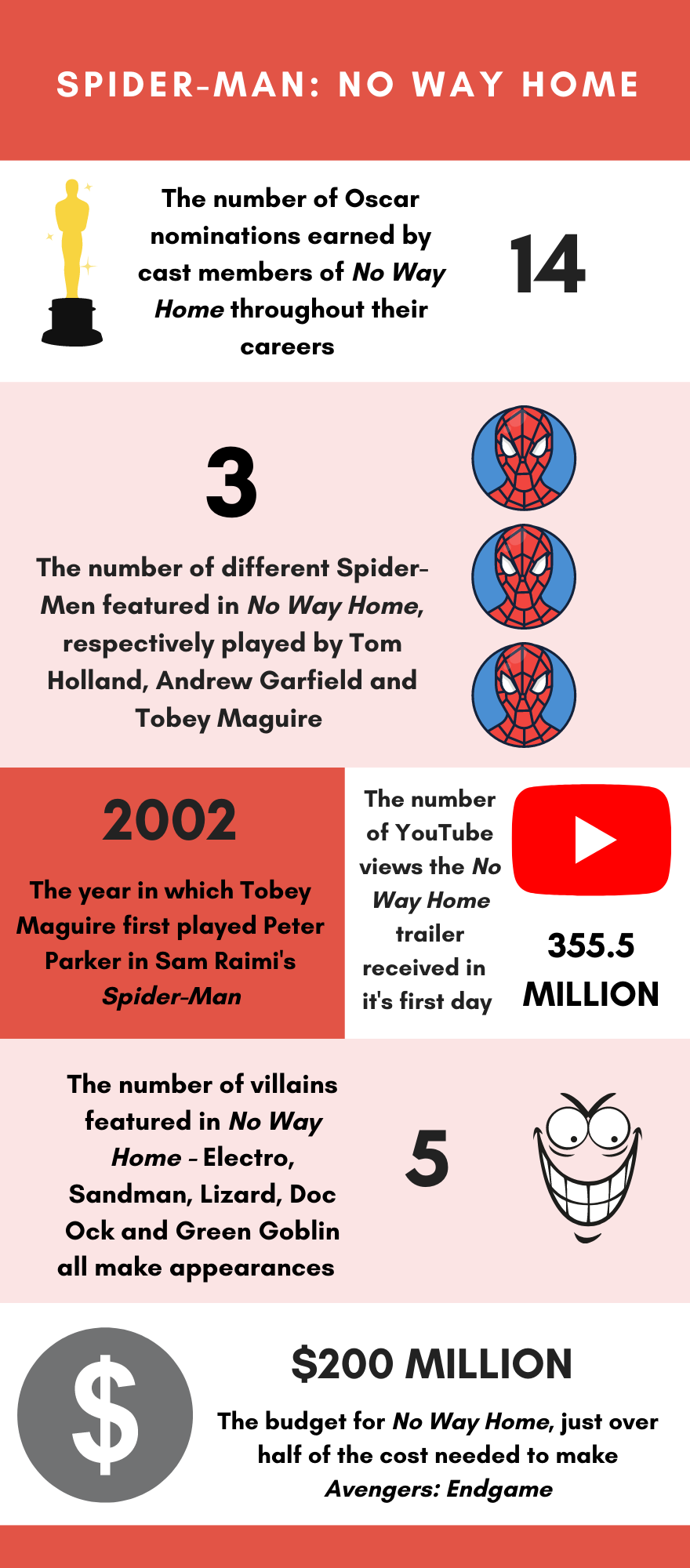
Cinemas and COVID-19
To fully understand Sony’s Oscar attempts, one must appreciate the circumstances into which Spider-Man: No Way Home was released.
In January 2020, approximately 70,000 cinemas were closed across China in response to COVID-19.
The rest of the world’s cinemas soon followed suit, toppling like dominos as countries plunged into strict lockdowns.
In the UK, all cinemas closed on the 20th March, and so began a period of financial woe that would not ease until the second half of 2021.
In that period, due to the constant fluctuation of COVID-19 rules, a number of films that would ordinarily have been reliable money-makers for cinemas were either released jointly on streaming services or bypassed cinemas altogether.
Figures released by Comscore show that UK cinemas' revenue dropped by 76% in 2020 compared to the year before.
As COVID-19 rules were relaxed around the world in the second half of 2021, cinemas were able to reopen, but what began as a survival method for films in 2020 had become the norm.
Multiple films that would usually serve as reliable money-makers for cinemas – Dune, The Matrix Resurrections, Black Widow – were released early to streaming services, depriving cinemas of much-needed income streams.
Only when films such as No Time to Die and Spider-Man: No Way Home opened, both of which repeatedly postponed their release dates to ensure a purely cinematic release, did cinemas start to breathe a sigh of relief.
When it opened in December, the impact of No Way Home was felt almost immediately, and gave cinemas worldwide a massive boost going into the New Year.
It propped up the global box office, and data from Box Office Mojo shows it dwarfed all other films released that year.
It is almost in recognition of its service to cinemas that No Way Home has found the basis for its Oscar campaign.
After all, the Oscars are an institution that exist to promote the virtues of cinema, and only in recent years have they begun to make their peace with streaming services, with Netflix-produced films such as Martin Scorcese's The Irishman and Alfonso Cuarón's Roma making the nominations.
Rewarding a film such as No Way Home would not only display a certain gratitude, but also provide a much-needed boost to the Oscars themselves.


The Oscars
The Oscars are widely considered the most esteemed and desired award in cinemas, and exist to defend cinematic excellence.
But the Academy of Motion Picture Arts and Sciences, the body which presents the awards, has been hit by a number of setbacks over the past few years.
The 2016 Oscars went viral after the acting nominations were announced and all 20 of the nominees were white.
This led to media strategist April Reign launching the hashtag #OscarsSoWhite, which began a seismic reckoning of the racism and indifference to non-white talent within the Oscars and wider entertainment industry.
#OscarsSoWhite they asked to touch my hair. 😒
— April (@ReignOfApril) January 15, 2015
That year, all the directing nominees were also male, continuing the Oscars' trend of overlooking female directing talent.
But in 2020 the writer and actress Issa Rae very publicly and pointedly called out the Academy when they employed her to announce the (all-male) directorial nominees for that year.
She concluded her broadcast with the words "Congratulations to those men."
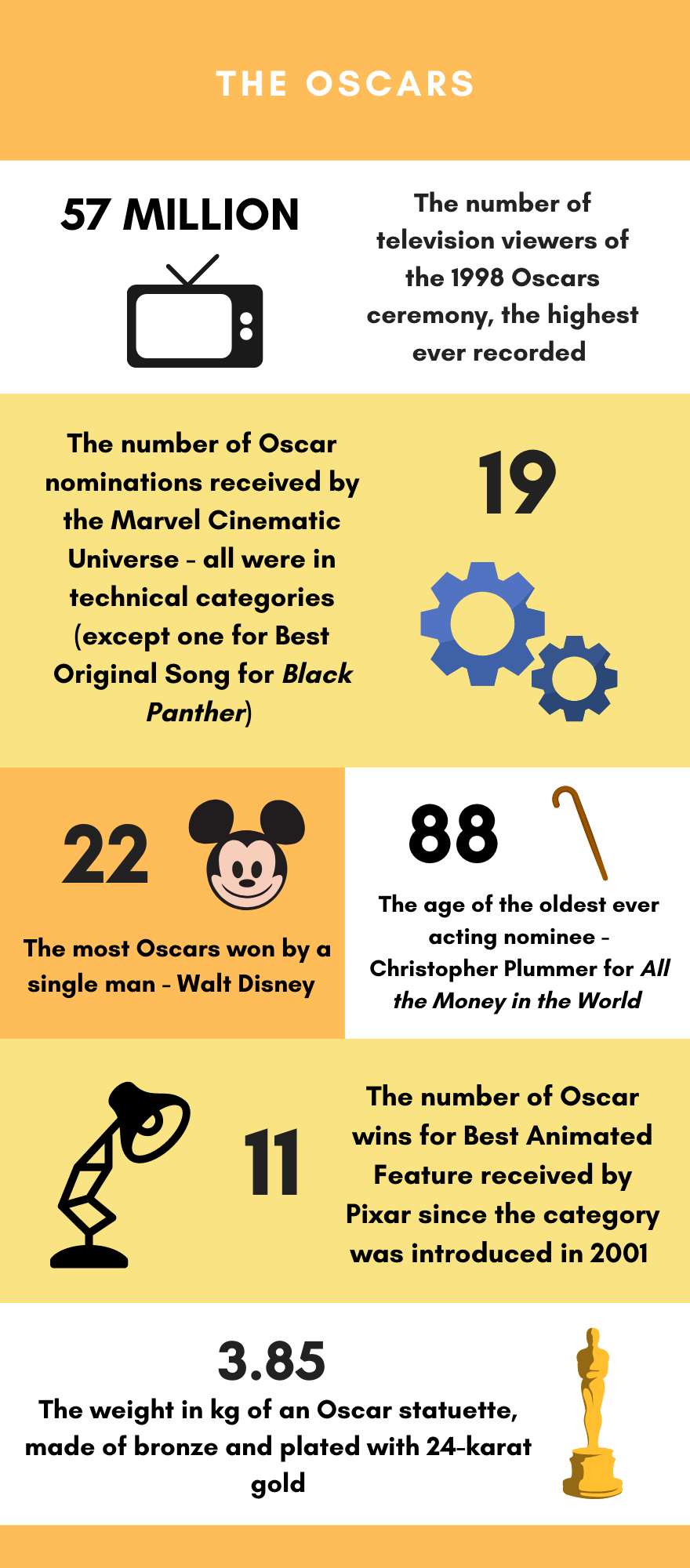
Data from Statista also shows there has also been a widespread decline in the number of television viewers watching awards ceremonies, particularly the Oscars.
This can be attributed in part to the fact that the results of such shows are freely available on social media concurrently with the broadcast.
Also, ever since the comedian Kevin Hart pulled out of hosting the 2019 Oscars due to the unearthing of homophobic tweets, the ceremony has gone without a host.
The routines, monologues, and personality that a host injected into the Oscars were reasons for viewers to tune in to the live ceremony.
But the Oscars have a broader problem which has cost them viewers.
The types of films nominated are often those with considerably smaller audiences than blockbusters like Spider-Man: No Way Home.
David Crow, the movies editor at Den of Geek and member of the Critics Choice Association, said: "Studios may be having this argument, about every year, that you should be nominating what is popular.
"This is really what the Oscars were when they were invented in the 1920s. They were an advertisement."
Until 2010, only five films had been nominated each year for Best Picture, but the category was then expanded due to perceived genre bias against popular films.
"It’s very likely because The Dark Knight was snubbed in 2009, which everyone thought was going to be nominated for Best Picture," said Crow.
"That's why the Academy went back to having up to ten nominees. They wanted to become more democratic and allow more movies to get nominated."
This provides room for a popular superhero sequel like Spider-Man: No Way Home to nab a nomination.


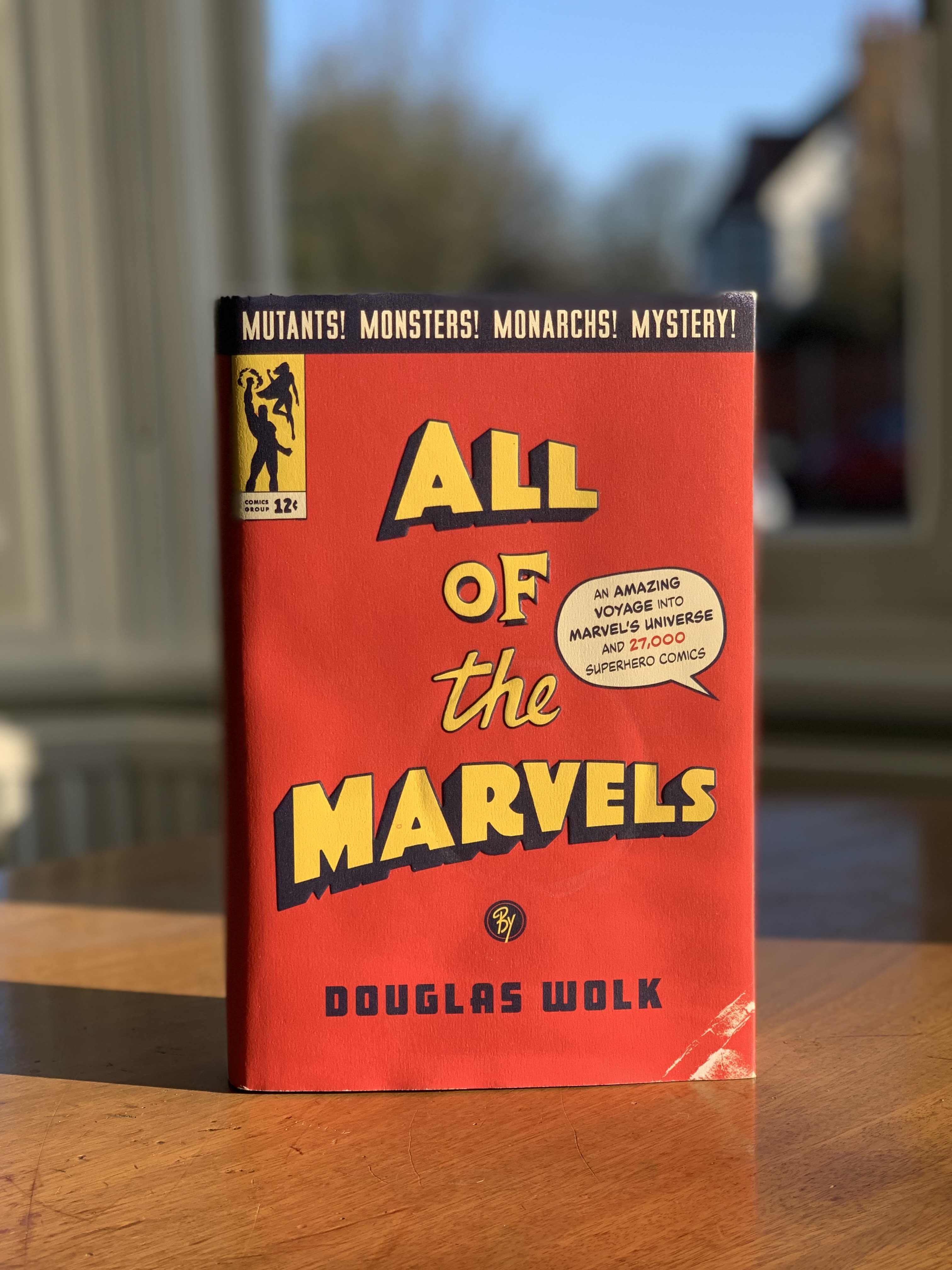
Spider-Man's Popularity
Spider-Man: No Way Home certainly is popular - the box office receipts do not lie.
But simply as a character, Spider-Man himself is adored the world over.
One man who could quite convincingly stake his claim for being Spider-Man's biggest fan is Douglas Wolk, an Oregon-based author and journalist.
He made it his mission to not only read every single Spider-Man comic in existence, but every Marvel comic, which total over 27,000.
He documents this feat, which led to him locking himself in an apartment for 11 days with a case of protein drinks, in his new book All of the Marvels.
On Spider-Man's enduring popularity, he said: "He physically does things that nobody else can do that are fun to watch.
"He’s a teenage kid who doesn’t know his place in the world, and he’s trying to find it.
"That’s a really compelling story on its own, and then if you dress it up with incredible aerial acrobatics, and a character who is compulsively funny all the time and plays well off anybody in his vicinity, everything about that is just a super compelling story."
Critics would agree too, with The Times calling No Way Home 'a dynamite blast of smarty-pants postmodernism that never once abandons its emotional core', Deadline proclaiming it 'truly one of the year's best movies', and Rolling Stone saying 'you get the sense that you are seeing something special'.
.@TomHolland1996 gives a massive THANK YOU to the critics and fans for #SpiderManNoWayHome's three #GoldenTomato Award wins! pic.twitter.com/ctYOblVYQs
— Rotten Tomatoes (@RottenTomatoes) January 14, 2022
No Way Home is also packed with Oscar-worthy acting talent, some of whom may well be nominated at this year's ceremony for other films (Benedict Cumberbatch for The Power of the Dog and Andrew Garfield for tick, tick…BOOM!).
So, why is an Oscar campaign for Spider-Man: No Way Home considered something of a far-fetched idea?
The Oscars and Comic Book Films
The Oscars have a complicated relationship with films based on comic books.
Comic book films now make up so much of the global box office that it is hard to overlook their hegemony.
Members of the Academy have criticised them for this dominance, partly because they detract attention from smaller, perhaps more Oscar-friendly films.
"There's always been kind of a resistance to what's really popular and viewed maybe as lighter escapism, even if it's done masterfully," said David Crow.
"For example, Hitchcock never won a competitive Oscar. Spielberg wasn't really considered an Oscar favourite, or even a contender until Schindler's List."
The extent of Marvel's popularity is staggering. Last year, Spider-Man: No Way Home and three other Marvel films pushed the Marvel Cinematic Universe to a cumulative gross of over $25 billion since it began in 2008.
Data from The Numbers shows this dwarfs every film franchise that has ever existed.
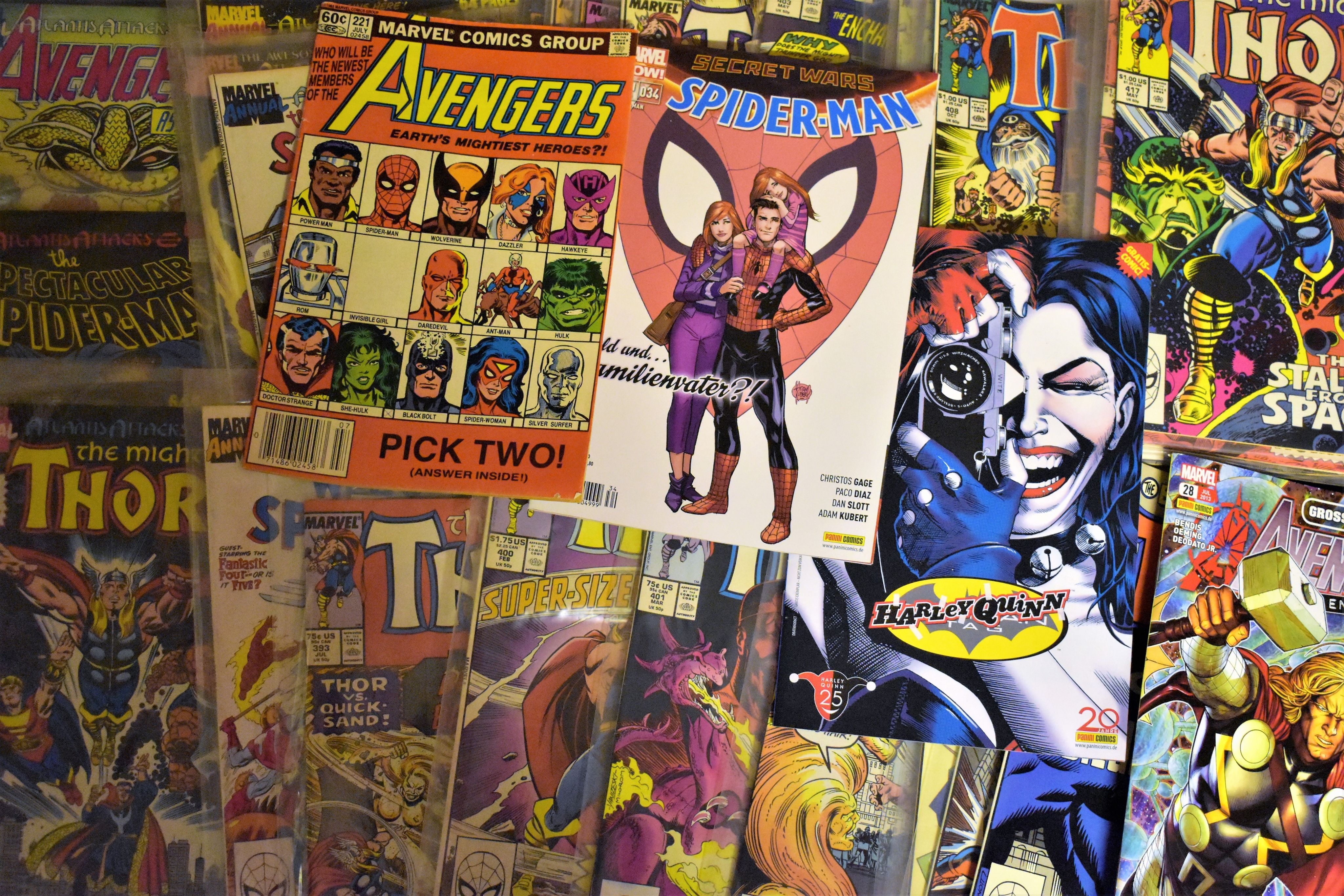
Marvel's dominance of popular culture is something that the Oscars have found difficult to navigate.
David Crow said: "It's really in the 21st century that the Oscars have become more elitist.
"I like that they recognise smaller movies, but that elitism has also kind of divorced them from popular culture and popular culture has changed."
However, a number of Oscar-nominated directors remain stalwart in their criticism of Marvel films.
Jane Campion, director of The Power of the Dog, told Variety: "I hate [superhero films]. I actually hate them. They're so noisy and ridiculous."
Dennis Villeneuve, director of Dune, told French outlet Premiere: "If we’re talking about Marvel, the thing is, all these films are made from the same mould...they’re all cast in the same factory."
They join a chorus of directors who criticise Marvel and films such as Spider-Man: No Way Home for their place within a very serialised franchise, and believe that their inherent interconnectivity limits the artistic potential for each individual film.
Kyle Buchanan, the awards season columnist for The New York Times and pop culture reporter, tentatively agreed: "The Marvel movies have to serve different mistresses.
"They have to set up other movies, they have to play off other movies, they have to tease things.
"The feeling of nominating something that's so serialised is more of a television experience than a cinematic one."
Marvel has succeeded in getting recognition for its television content, winning Emmy awards for innovative shows such as WandaVision.
This is perhaps testament to the franchise's strength as an ongoing serialised project rather than a pure cinematic experience.
There are, however, two films released in the last five years that could serve as templates for how Spider-Man: No Way Home could net itself an Oscar nomination: Spider-Man: Into the Spider-Verse and Black Panther.

Spider-Man: Into the Spider-Verse
Released to much fanfare in 2018, this animated film is not part of the Marvel Cinematic Universe, and follows the journey of an Afro-Latino teenager called Miles Morales as he becomes Spider-Man.
Other alternate versions of Spider-Man from different universes join forces with him in a battle against a number of multi-versal villains, in a plot with multiple similarities to No Way Home.
The film was not only a box office success, but won the award for Best Animated Feature at the Oscars that year.
The innovative way in which it was animated to make the viewer feel as though they were watching a comic book come to life onscreen played a huge part in its victory.
"There are radically different visual and narrative styles within that movie alone," said Douglas Wolk.
"Every time we'd shift to a different character or a different world, we're shifting the visual storytelling style."
This film also showed that a crowd-pleasing superhero like Spider-Man could indeed swing his way into the Oscars.
At the time, its victory was a breath of fresh air in a category that had so long been dominated by Disney and Pixar.
Kyle Buchanan: New York Times awards season columnist and pop culture reporter
Kyle Buchanan: New York Times awards season columnist and pop culture reporter
However, despite all the similarities this film and No Way Home share, the fact that Into the Spider-Verse is animated could prove to be a crucial difference that damages No Way Home's chances of replicating its Oscar success.
David Crow: movies editor at Den of Geek and member of the Critics Choice Association
David Crow: movies editor at Den of Geek and member of the Critics Choice Association
In the history of the Oscars, only three animated films have ever been nominated for Best Picture – Beauty and the Beast, Up, and Toy Story 3 – which does indeed suggest that voters do not give animated films quite the same reverence afforded to traditional Best Picture nominees.
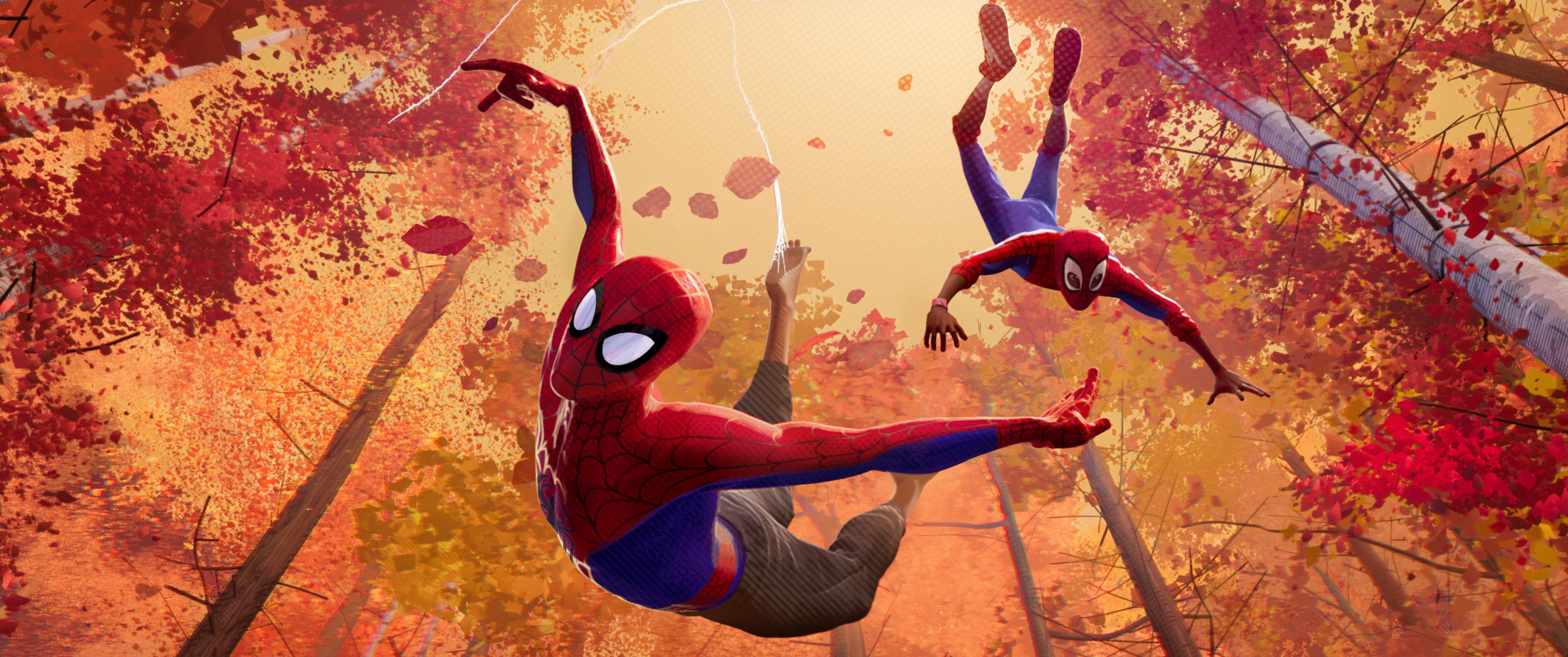
Black Panther
The second film which could provide basis for an Oscar nomination for No Way Home is Black Panther.
Nominated at the same ceremony as Spider-Man: Into the Spider-Verse, this entry in the Marvel Cinematic Universe felt like a moment in cinematic history.
It tells the story of King T'Challa, the ruler of an Afro-Futurist kingdom called Wakanda, which he and his army try to conceal from the wider world.
The way in which it centred African-American narratives and protagonists, made the case for improving representation both on and off camera, and was a critical success with practically everyone who laid eyes on it made it a shoo-in for a Best Picture nomination.
Like No Way Home, the film grossed over $1 billion, proving that being a Marvel film with mammoth box office receipts isn't a barrier to an Oscar nomination.
Both films experienced a wave of adoring reactions from fans, and also relied extensively on CGI animation, a factor that Marvel has been criticised for in the past.
David Crow
David Crow
However, the differing cultural impacts of the two films are perhaps the reason why Spider-Man: No Way Home shouldn't rely on Black Panther’s nomination as a template for success.
The cultural moment that No Way Home is having is reliant on fans of previous Spider-Man franchises revisiting their childhoods through this new film.
This nostalgia has proved to be box office gold, but it cannot match the cultural significance that Black Panther had in terms of furthering African-American representation in cinema, and particularly comic book cinema.
Furthermore, Black Panther felt notably standalone and fresh within the broader structure of the Marvel Cinematic Universe.
Since it was an origin story for King T'Challa, it felt separate from other more serialised entries in the MCU that the Oscars have been reluctant to reward.
No Way Home, however, includes multiple stalwart MCU characters, tying it a lot closer to the franchise's rigid structure.
Kyle Buchanan
Kyle Buchanan
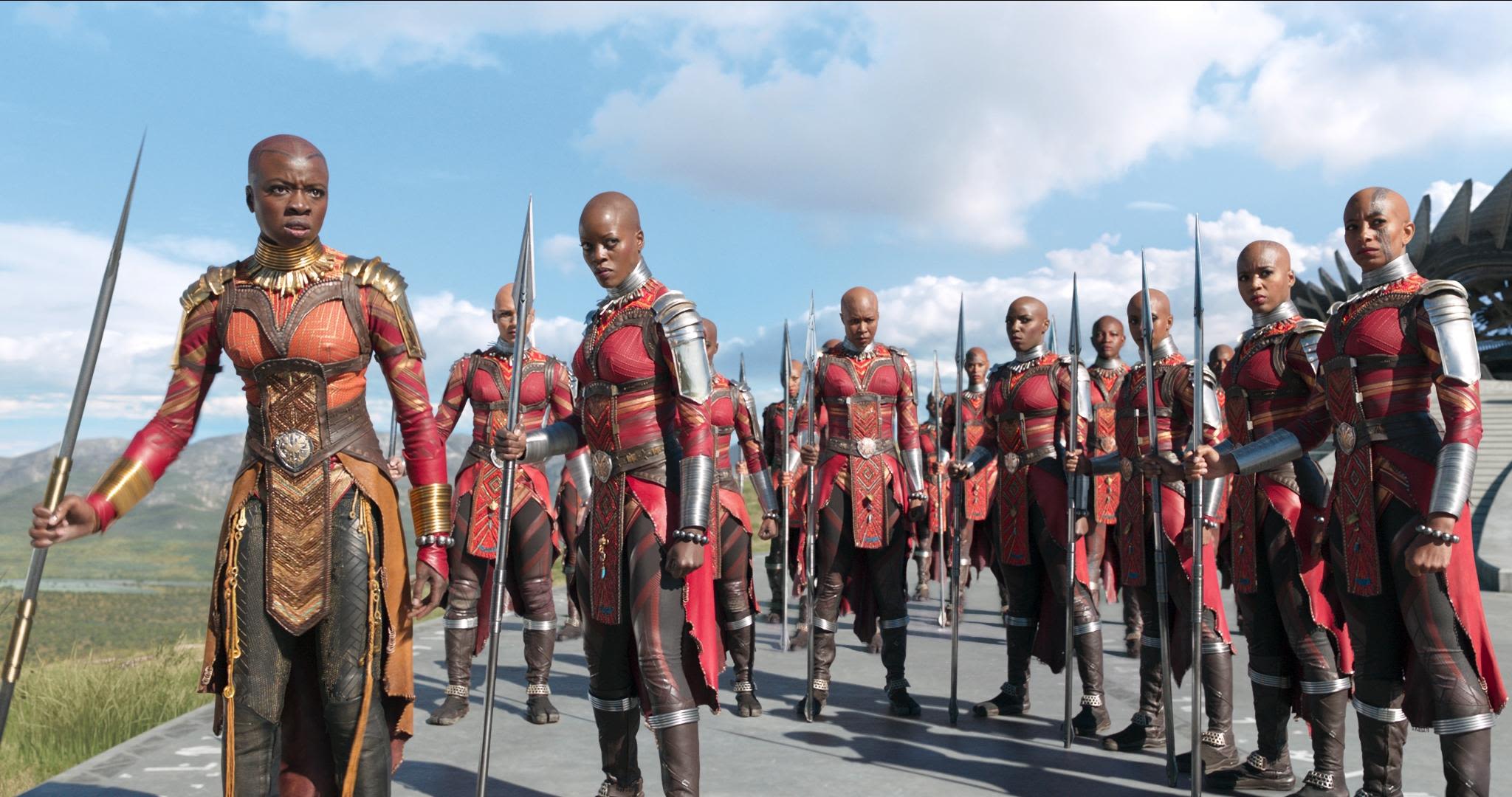
The Oscar nominations are set to be announced on the 8th February, and Sony will continue to argue No Way Home's case for a place at the Best Picture table.
There is no denying that its impact on cinema has been immense, as has its role in keeping cinemas afloat during the most tumultuous time in their history.
From the point of view of the Oscars, the millions of people who flocked to see No Way Home worldwide are also potential viewers of a ceremony that so desperately needs to increase its television audience.
Would the Oscars take steps to capitalise on this?
However, Oscar voters know that no matter how financially successful a film is, it is artistic merit which must be first and foremost in their minds when picking their nominations.
Whichever direction Oscar voters decide to go in, the Academy have shown a willingness to recognise Spider-Man: No Way Home for its service to cinemas this year.
Reports indicate that they have reached out to Tom Holland himself to host this year's ceremony, a move sure to attract a sizeable chunk of comic book fans.
He's a formidable stage presence after all, having starred as Billy Elliot in the West End in 2008.
Perhaps Spider-Man can rescue the Oscars even without a nomination.
Image Credits
Canva Stock Images
Allstar Picture Library Ltd/Alamy Stock Photo (Marvel Studios/Disney)
Entertainment Pictures/Alamy Stock Photo

